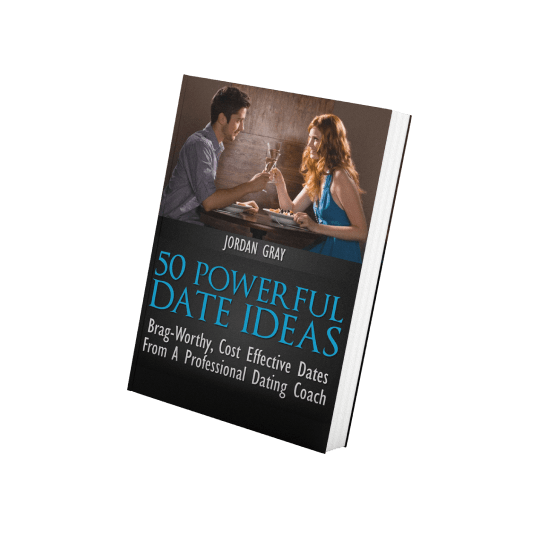I feel like I would have benefitted a lot from being given a basic lesson in what the core emotions are, how they feel, and what they meant when I was a little boy.
Alas, our emotional education is essentially non-existent.
There have been times where my body, mind, and heart have been telling me things for months on end without me being able to understand it. And the funny thing is, emotions make a lot of sense on the logical level, once you have a relationship with them and understand what they’re trying to teach you.
So whether you’re navigating a major life change, unsure about your relationship, or just need help in understanding what your core emotional drivers are, here is a summary of what your emotions are and what they’re trying to tell you.
I have narrowed my list down to the essential five emotions that I believe are beneath all of our other emotions. That is to say, there are hundreds of what I would consider to be “secondary” emotions that are just layers that spring forth from these five essential feelings (secondary not in importance, but secondary in terms of they are the result of the core five).
Without further ado, here are the five core emotions and what they are trying to teach us.
1. Happiness
This is our default emotional reality when our basic human needs are being met.
We feel happy when we feel safe, connected, and loved.
On one end of the spectrum of arousal happy can feel like calm, relaxed contentment, and the other side of the spectrum it can register as joy, bliss, ecstasy, or the feeling of being in love.
Our bodies often feel expanded, warm, flowing, and relaxed when we are happy.
2. Sadness
Sadness flows through our bodies when we are experiencing some form of loss in our lives. Whether that loss is around something as contextually insignificant as dropping our ice cream cone on the ground, or as devastating as the end of a relationship or losing a job or a loved one that we adored.
People go to great lengths to avoid allowing themselves to feel sadness. But I like to think of sadness as a kind of honouring process. We honour how much something meant to us when we let the ripples of sadness flow through our body… whether in a temporary pouting kind of way, or in a take several days or weeks to full-out sob when we experience a more significant loss in our lives.
And it’s true… you can feel it to heal it. If you let yourself lean into your emotional processing of sadness, it will one day flow through you and you can heal your way to the bottom of it. Allowing yourself to fully experience sadness will only make you a stronger and more resilient person.
Physical symptoms of sadness often include a feeling of heaviness in your chest, tension around your jaw and throat muscles, and tears in your eyes.
3. Sexual
Out of the five emotions on this list, I would say that this one is the most often neglected in other peoples lists (because you could argue that it stems from happiness, but I feel like it’s different enough and neglected enough in our culture that I’m going to include it… plus it’s my list so I’ll do what I want).
Sexual arousal is experienced differently from person to person, but common physical experiences often feel like some combination of a feeling of heat in the chest and groin area, visible redness or flushing of the face and upper chest, a slowing down of the pacing of your breathing, and a spreading feeling of the arousal eventually making it’s way through your entire body.
Our sexual desire is one of the strongest driving forces in our entire lives (after all, it is responsible for our species thriving). When you learn how to harness your sexual energy you can feel unstoppable. I’ve written before about how I completely stop, or at least cut down the frequency, how frequently I ejaculate when I’m writing one of my books… and this is why. Our sexual energy can be transmuted into creative energy, and it is a force unlike any other.
It’s also important to remember that your sexual energy (just like every emotion that you experience) is created by you and lives only in your body. So even though it’s easy to think, “I saw that attractive person and they turned me on”, in reality, you turned yourself on. Just like people don’t “make” you sad, angry, or happy, we have to learn to take personal responsibility for our own emotions. This is often the case with our sexual feelings even more than the others.
4. Anger
One of the coolest things that I ever learned when studying childhood development (whether this is true or not I don’t really care, I just like the idea of it) is that we can’t learn to crawl until we learn the emotion of anger (or the secondary emotion in this particular example would be frustration). We can’t crawl because we have to be angry enough about our current situation of not being able to move ourselves around. We want to be mobile, and we resent the limitation of being stationary. Enter anger… and then the learning moment follows.
Anger is the feeling that we are either being blocked in some way (there is an obstacle between us and our desired outcome) or that we are getting something that we don’t want. An example of the former would be a sumo wrestler attempting to push his opponent out of the ring, and an example of the latter would be someone trying to take credit for work that we did in a job that we held close to our sense of identity. The former is proactive, the latter is reactive.
When you’re angry your muscles tighten up (jaw tensing, fists clenched, major muscle groups experiencing strain, etc.) and you feel like energy is trying to force it’s way out of your body. Whether that registers as pushing against something or someone, stomping our feet on the ground, or growing/making noises, anger causes us to act.
5. Fear
Fear is meant to keep us safe. But sometimes it overstays it’s welcome and it keeps us too safe (for example, fear of what other people will think of you could keep you from pursuing your dream career).
On the low end of the spectrum, you might experience fear as nerves… nerves before a first date, or before doing some public speaking for example.
We’ve all heard about some version of the fight or flight, or fight-flight-freeze response. The fight or flight response kicks in at a higher end of the spectrum when we perceive a threat that we believe could do actual damage to us (physically or emotionally).
But the important thing to recognize with our evolving minds is that we experience fear even when it doesn’t actually serve us. We do this because we experience fear in response to the perception of a threat, not exclusively to actual threats. What does that mean? It means we feel fear even when we imagine or invent something to be afraid of, not just when there is a clear and certain threat to our well-being.
–
I hope that this educational primer has helped you under your feelings a little bit better.
There were certainly a few ‘A-ha’ moments in my journey of emotional self-discovery.
If you need help navigating or understanding your emotions in any way, you can always feel free to reach out and chat.
Dedicated to your success,
Jordan







